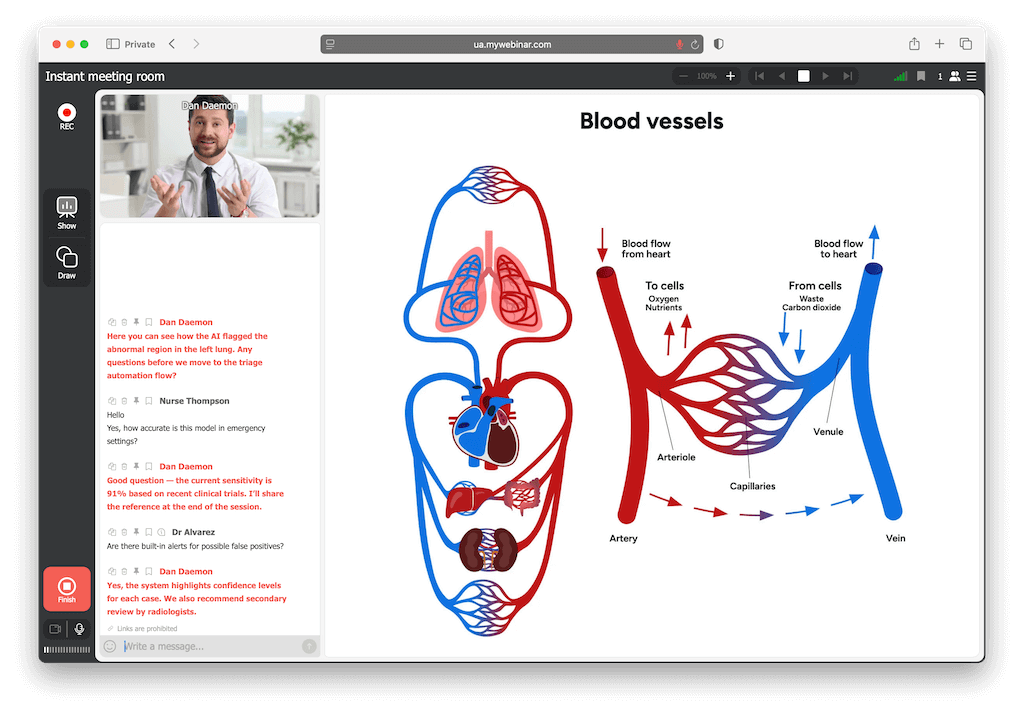
Healthcare continues to evolve at an unprecedented pace. Digital tools are essential to delivering scalable, high-quality education and compliance updates across clinics and hospitals. Webinars allow medical institutions to reach large, dispersed teams while maintaining a high standard of learning. You can host sessions on HIPAA regulation changes, run live Q&A on telehealth ethics, or explore the clinical implications of AI diagnostics. For healthcare professionals, this format removes geographical barriers and enables consistent knowledge sharing. Whether for onboarding new clinicians or updating protocols, webinars help ensure your workforce stays aligned with the latest developments in healthcare delivery and patient safety

Webinars deliver specialized knowledge, enable cross-team collaboration, and simplify ongoing certification. Here’s how our platform helps you create effective medical webinars

Use our platform to deliver impactful medical training, share compliance updates, support mental well-being, and onboard AI tools. Whether you run a clinic, hospital, or private training practice — webinars help streamline your educational goals and build stronger, smarter teams
Proudly crafted and hosted in the EU since 2013